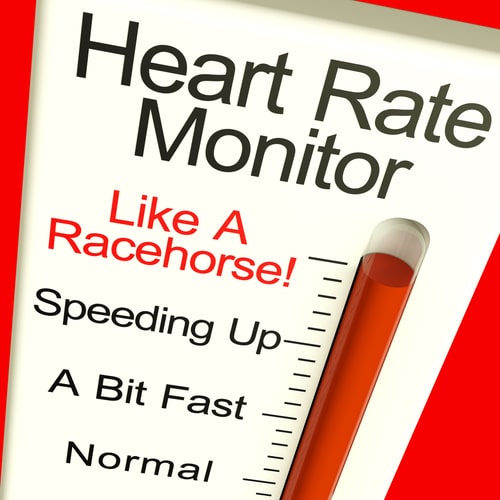
Athletes generally have slower resting heart rates than untrained people. This raises the question of whether resting heart rate is a marker for health or longevity and whether having a faster one is a risk factor for heart disease or early mortality. There is some evidence that people with faster resting heart rates are at greater risk for heart problems and that it’s a marker for low levels of physical fitness.
Resting Heart Rate: What Does It Say about Your Health?
According to research published in the Journal of the American Medical Association, a higher resting heart rate is a risk factor for heart disease, independent of other cardiac risk factors. It’s also important how your resting heart rate changes over time.
In one study published in JAMA, people who experienced an increase in resting heart rate over a ten-year period from 70 to 85 beats per minute range to over 85 b.p.m had an increased risk of dying from all causes, including heart disease. So higher resting heart rates and a heart rate that increases over time may be a risk factor for heart disease and premature mortality.
Just as important is the speed with which your heart slows down after exercise. This is called your recovery heart rate. To measure your recovery heart rate, run on a treadmill or do some other form of aerobic activity at a vigorous pace for one minute. Take your pulse rate as soon as you stop and write the number down. Then recheck your pulse again after a full minute has passed. Subtract the first number from the second. If the result you get is less than 18, some research says 12, your heart rate recovery is slow, and you may be at greater risk for heart problems or are in poor physical shape.
Healthy people and athletes can have a heart rate recovery as high as 50 or more, meaning their heart rate drops 50 beats during the first minute after they stop exercising. This is an indicator of a high level of fitness. Some factors can affect this value. Exercising in a very hot environment or when you’re dehydrated can slow down how fast your heart recovers after exercise.
Other Factors That Affect Resting Heart Rate
Even though a high resting heart rate and slow heart rate recovery are indicators of poor physical fitness and, possibly, an increased risk for heart disease, a number of factors can affect your heart rate at rest and give a falsely elevated reading.
If you’re anxious or under stress, your sympathetic nervous system is on high alert and you’re pumping out more adrenalin. This increases your resting heart rate until you “calm down.” When you’re running a fever and when you’re exercising your heart will be higher. Your heart rate also goes up when you’re dehydrated. Plus, some medications and drugs, including caffeine, can increase your resting heart rate. A high resting heart rate can also be a sign of medical problems such as an overactive thyroid gland or anemia.
Because so many factors can affect your resting heart rate, the best time to take it is first thing in the morning before getting out of bed. If you’re exercising regularly and find that your first-morning heart rate suddenly goes up (greater than five beats), it can be a sign you’re overtraining and need to rest and recover. It’s helpful to keep a record of your resting heart rate in the morning to look for signs of overtraining.
The Bottom Line?
Your resting heart rate and recovery heart rate says a lot about your level of fitness and your risk for heart disease. Keep in mind heart rate is only one factor that impacts your risk for heart disease. Genetics and other lifestyle factors are important factors too – but it’s a good idea to know your resting heart rate and your recovery heart rate and be aware of how they change as you become more physically fit. As you develop a higher level of fitness, your resting heart rate should go down and your heart should recover more quickly from a workout, meaning your heart rate will drop more rapidly when you stop.
References:
JAMA. 2012;308(22):2405-2406. doi:10.1001/jama.2012.64751.
Eur Heart J. 2006;27(20):2387-2393.
New England Journal of Medicine 1999(October 28);341(18):1351-7.
Related Articles By Cathe:
Resting Heart Rate, Exercise, and Risk of Dying
4 Possible Markers for Longevity You Can Easily Measure

